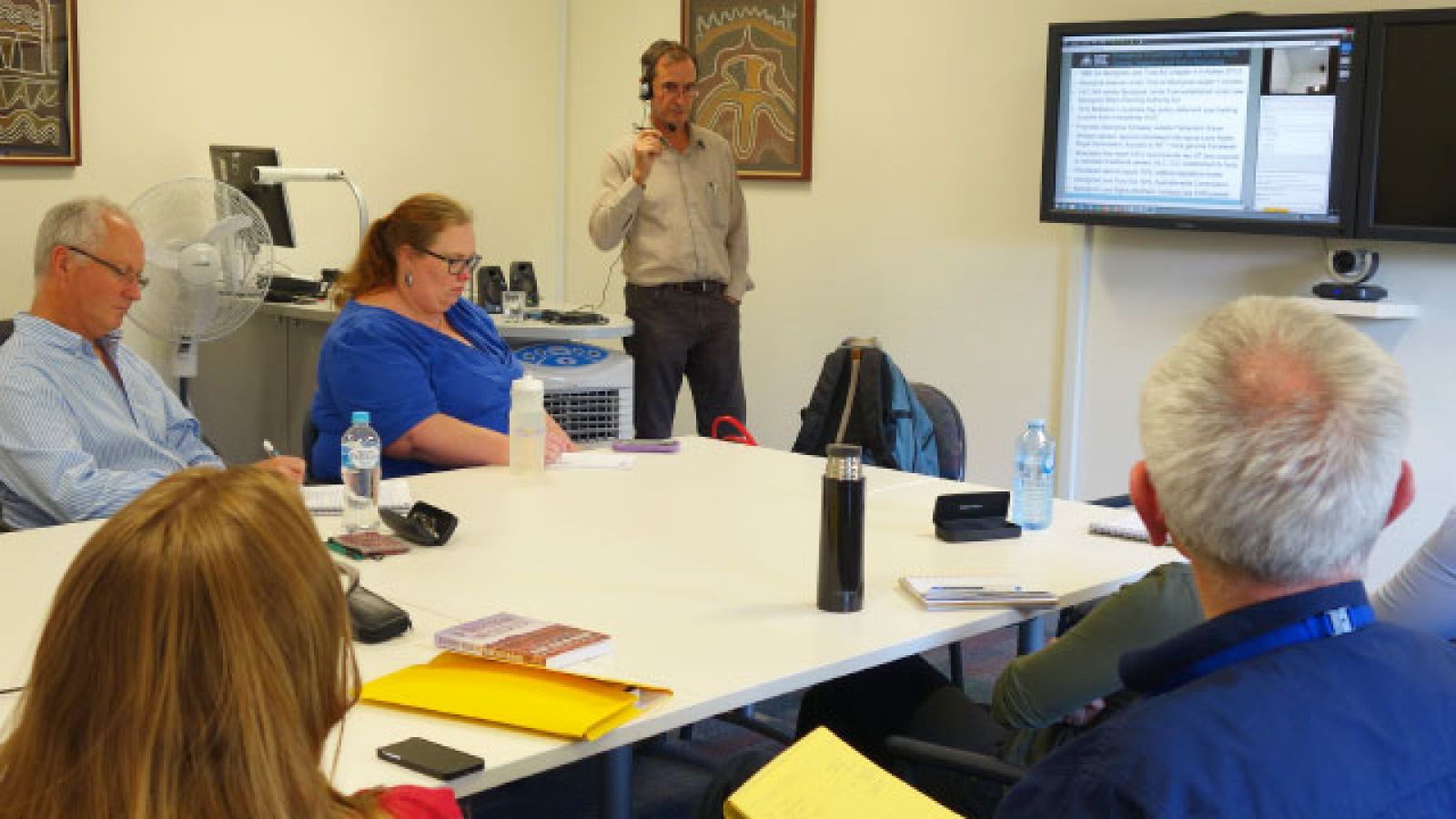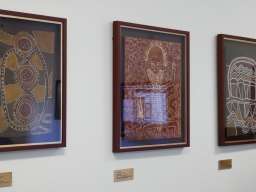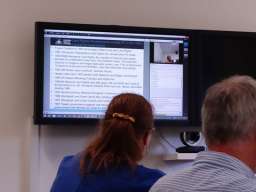Staff from the Department of the Prime Minister and Cabinet taking Indigenous course at ANU

Dr Will Sanders leads the course for students in the classroom and those joining remotely via Adobe Connect software
Ten public servants from the Department of the Prime Minister and Cabinet are participating in a pilot programme to undertake a course on Australian Indigenous Policy at The Australian National University (ANU).
The staff are among 20 students taking the postgraduate level subject, some of whom participate online from interstate and remote towns including Wadeye, Nhulunbuy and Alice Springs.
“The study of Indigenous policy, history and context is relevant to our day-to-day work,” says Ursula Carolyn, a Canberra-based senior adviser in the Department’s Indigenous Affairs Group.
“Part of my role is to design new policy and in order to do this effectively it helps to understand previous policy. Gaining knowledge of why a policy either did or didn’t work means that we can not only develop new policy based on best practice but we can also look at how we can improve our approach and be innovative in our project development and delivery.”
Ursula says undertaking the ANU Centre for Aboriginal Economic Policy Research’s course is a challenge, as she’s juggling her young child and working full-time.
“One great thing is that our readings are easy to get hold of, you just download and print from the WATTLE site,” she says. “I don’t have to run around or go to the library.
The 13-week course involves a weekly three-hour lecture and tutorial with the Department providing staff with time off work to attend either in person or online. Its goals include equipping students with analytical and critical writing skills.
Among the eligibility requirements are having an undergraduate degree, or being able to demonstrate five years’ work experience in Indigenous affairs in government or a non-governmental organisation.
Course convenor, Dr Will Sanders, has more than 20 years’ experience lecturing. In 2015 he approached the department to see if any public servants would be interested.
“ANU didn’t want the course to be restricted to students from central office staff [in Canberra], they wanted it to be open to all,” Will recalls.
“We’ve got people enrolled from around Australia, that’s the new thing we’re doing this year, and I’m enjoying that.”
Brisbane-based Glen Malthouse joins his colleagues each Wednesday via Adobe Connect. “I think the way the course assessments have been broken up is ideal for me with my current work schedule. Undertaking full time work and study is a huge commitment and one many find hard to commit to. This option provides me with a great balance.”
Bernard Morris, an ANU alumnus (Graduate Diploma, 1996), is a programme officer working in the Canberra-based environment branch. He says that before he signed up to do this course, he had been investigating the Indigenous Studies Masters program at ANU.
“In fact, I caught up with the course convenor the afternoon before the department sent around an offer for interested staff to participate.
“[The course] has helped me better appreciate what good Indigenous policy can look like and discover why the Working on Country and Indigenous Protected Areas projects I work on are successful.”
“As a result, I already have a better appreciation as to why Indigenous policy has failed in many areas. I have really benefited from the accumulated knowledge and dedication of the lecturers, particularly Will’s knowledge acquired over many years.”
Will Sanders says the pilot has been enthusiastically taken up the Department.
“I hope it’s a long and fruitful relationship,” he says.
“Some other Commonwealth departments are expressing an interest, so that’s very rewarding.”

